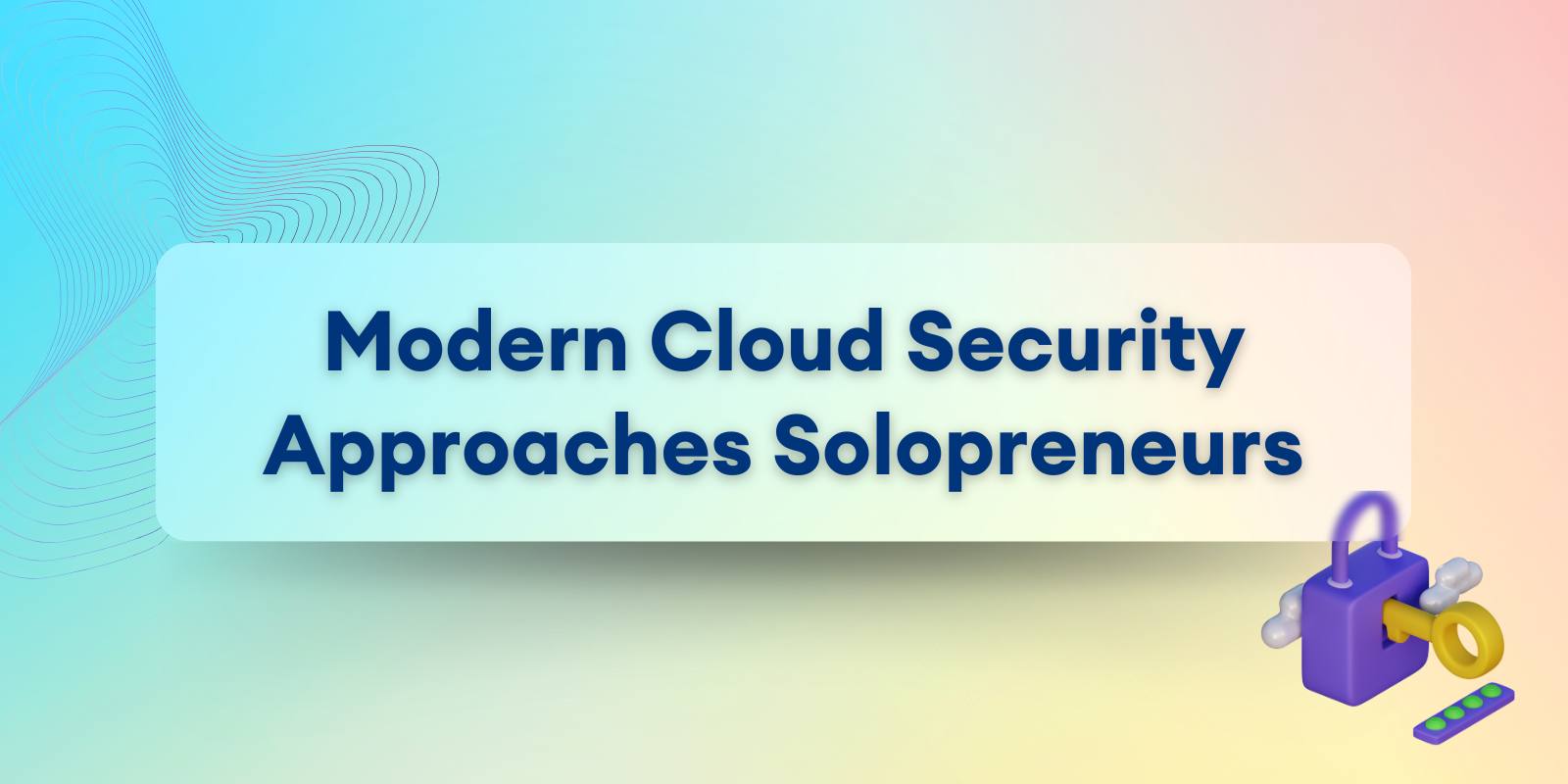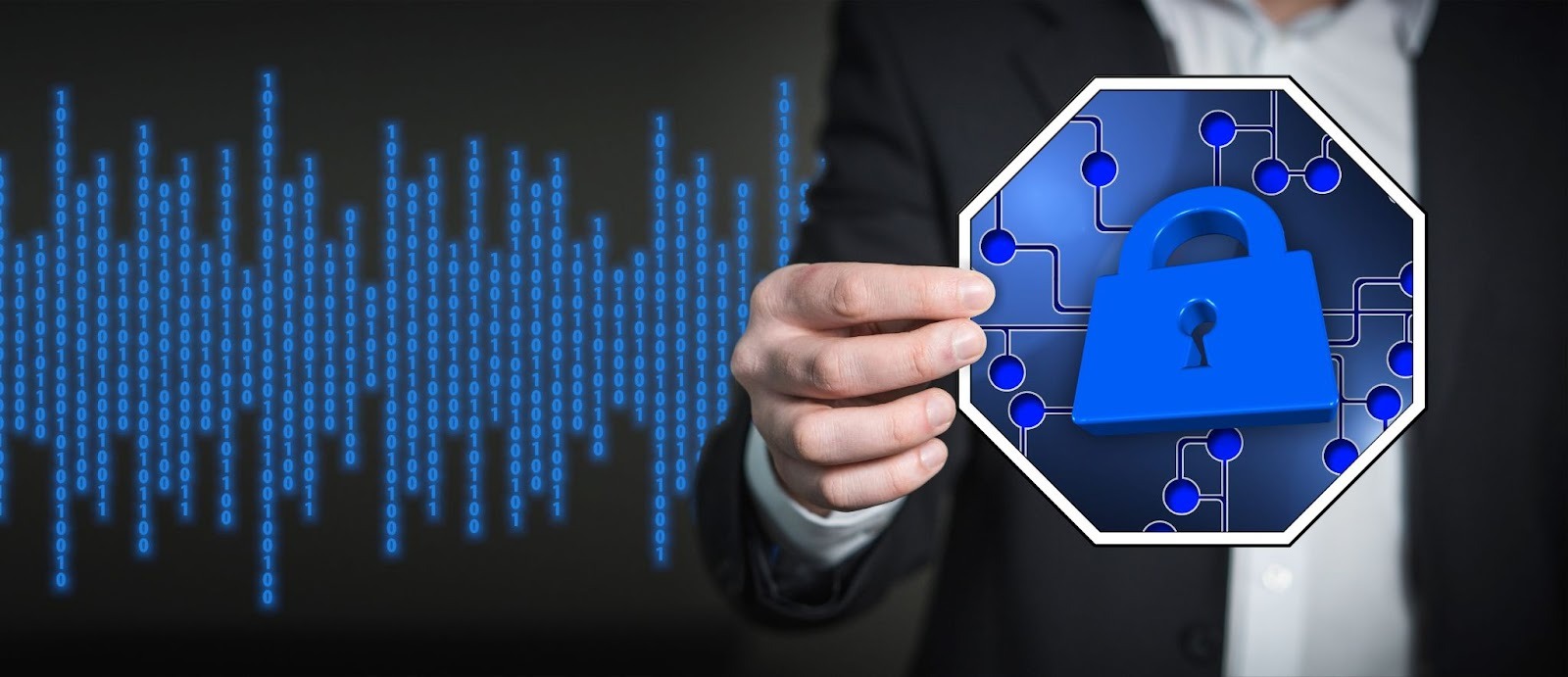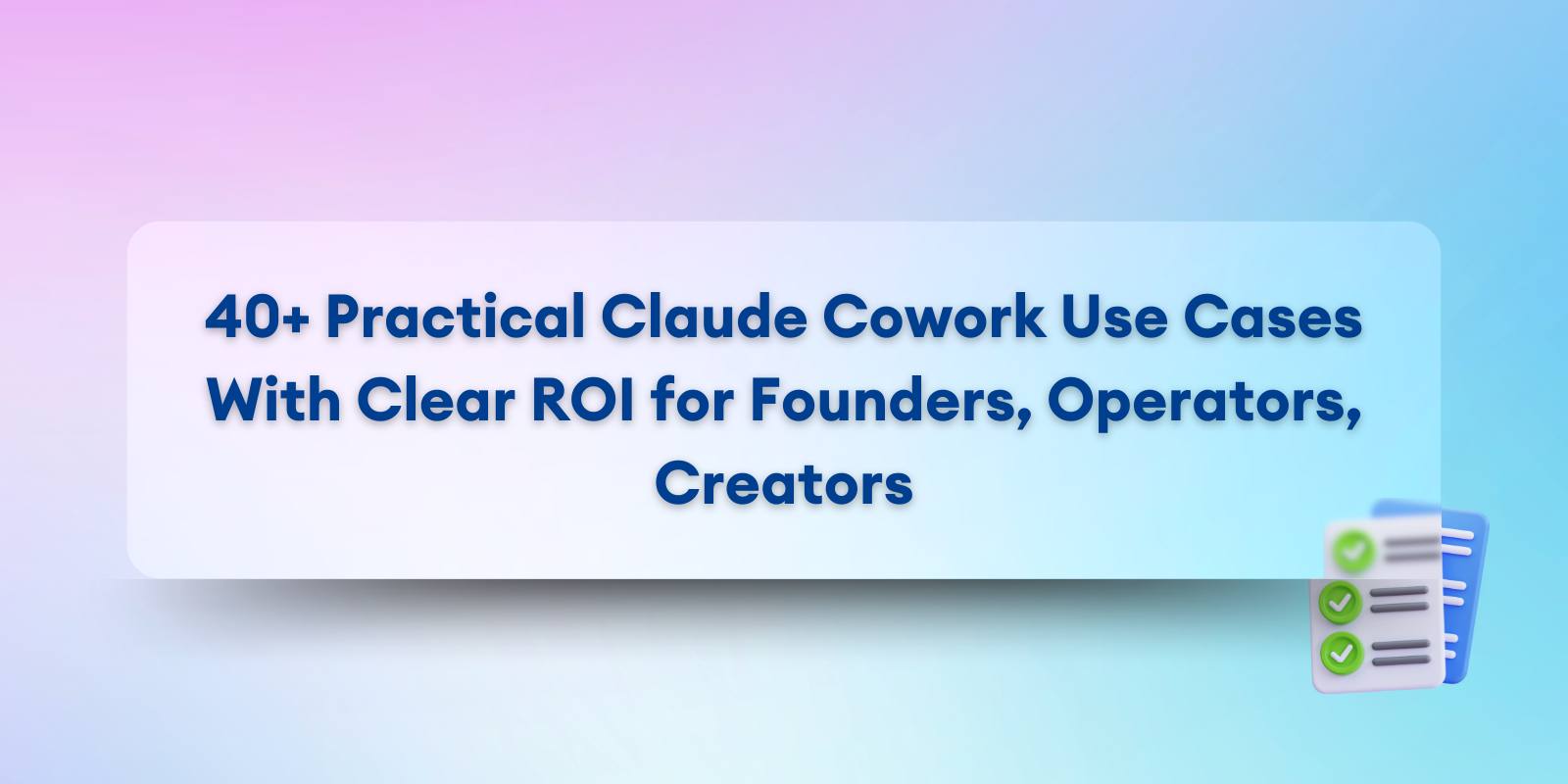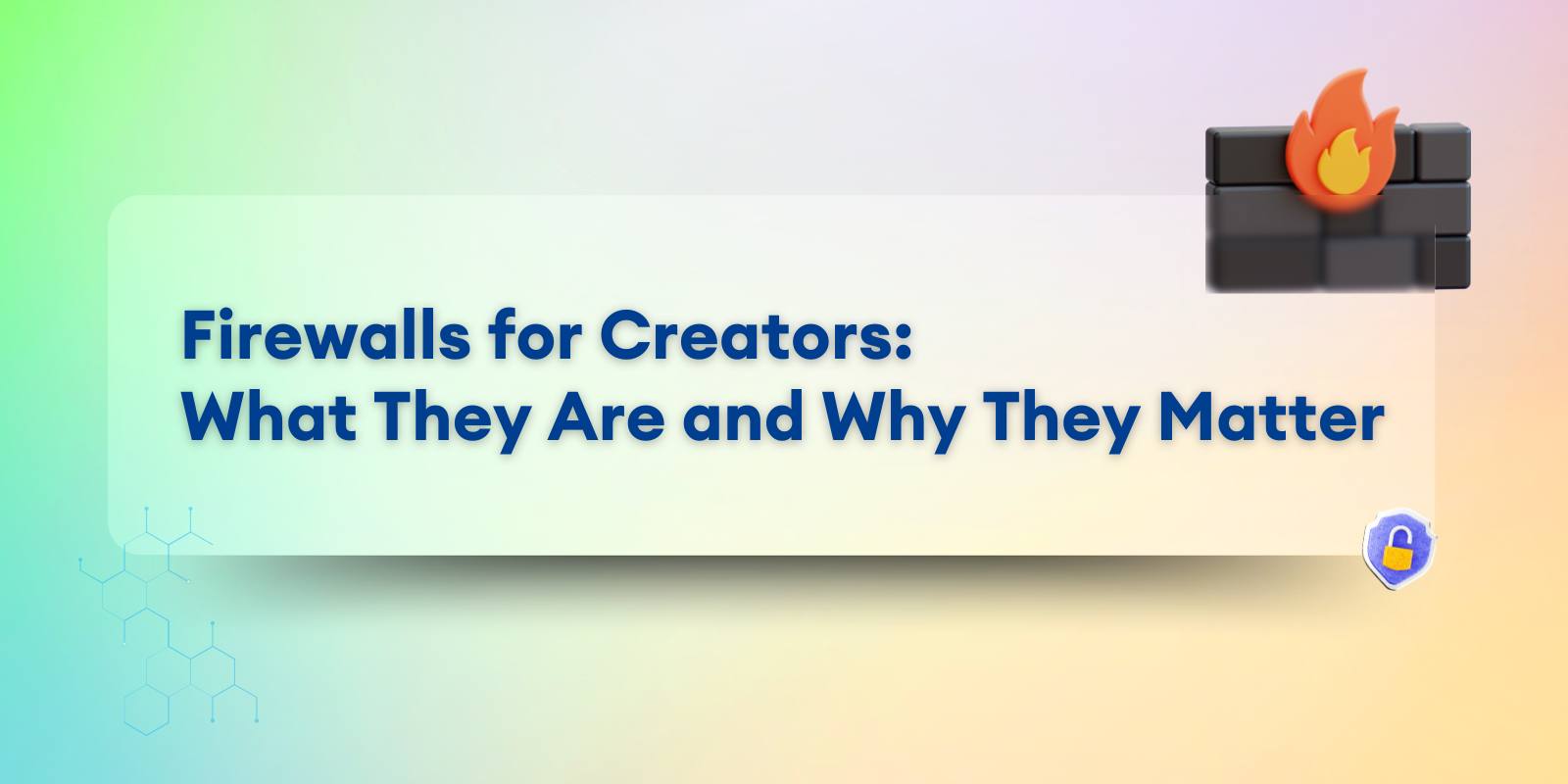
You close your laptop on Friday night feeling good. Another week is done. Projects shipped. Clients are happy. Automations are humming along quietly in the background.
Then Monday morning hits.
Your Notion workspace won’t load. Zapier says a “connection failed.” Webflow’s form data isn’t showing up.
Suddenly, your business feels like a Jenga tower made of apps, and one missing block sends everything wobbling.
If you’re a solopreneur, you live in the cloud whether you realize it or not. Your website, your invoices, your marketing, your client data, they’re all stored somewhere out there, inside tools you didn’t build and servers you don’t control.
That’s the beauty and the risk of running a no-code business. You get speed, freedom, and flexibility that used to take entire teams to achieve. But that freedom comes with a tradeoff most people don’t talk about: you’re only as secure as your weakest tool.
This isn’t about getting hacked by shadowy strangers. It’s about smaller, simpler things. Losing access to a key account. Forgetting to back up your work. A tool going down right before launch.
And when that happens, it’s not just your files at risk, it’s your reputation, your revenue, and your sanity.
The good news? You don’t need to be a cybersecurity expert to protect what you’ve built. You just need a few smart habits and modern approaches that fit the way solopreneurs actually work.
Let’s talk about how.
Why Solopreneurs Overlook Cloud Security
If you’ve ever thought, “I’m too small to be a target,” you’re not alone. Most solopreneurs believe security is something big companies worry about, not people working out of coffee shops with a laptop and a few logins.
But that’s the first myth that gets people in trouble.
The “I’m Too Small to Be Targeted” Myth
No one’s too small anymore.
Cyber attacks don’t look like movies where hackers sit in dark rooms and pick their next victim. They’re automated. Bots crawl the internet all day looking for weak passwords, open accounts, and unprotected tools.
You might never know who did it. Only that one day your login doesn’t work, your Stripe account gets flagged, or your client database disappears.
And it’s not always a “hacker.” Sometimes it’s an innocent misstep: an expired API key, a deleted automation, or a shared link that stayed public. The risk isn’t just being attacked. It’s being unprepared.
The Productivity Trap
The real reason solopreneurs ignore security? It feels like a speed bump.
You’re juggling clients, launches, newsletters, and deadlines. Adding “security checklist” to the list sounds like busywork.
So you tell yourself, “I’ll fix it later.” But later never comes, and your digital foundation starts to wobble.
Most solo founders think growth means adding more tools. In reality, it often means simplifying them, creating fewer points of failure and more stability.
The irony? The same systems you rely on to save time can take everything down if you don’t manage them wisely.
The Hidden Cost of Ignoring Security
When something breaks, the cost isn’t just time. It’s trust.
Clients lose confidence when systems fail. You lose momentum when you’re locked out or forced to rebuild.
Security isn’t about paranoia. It’s about professionalism.
It’s about running your solo business with the same reliability clients expect from a company ten times your size.
Once you see it that way, “security” stops feeling like a chore, and starts feeling like a competitive edge.
What Cloud Security Actually Means for Solopreneurs
The phrase “cloud security” sounds like something that belongs in a corporate IT meeting. But for solopreneurs, it’s not about firewalls or technical audits. It’s about protecting the digital ecosystem your business runs on every day.
Think about how your work happens right now.
Your ideas live in Notion or Airtable.
Your marketing runs through ConvertKit.
Your website is built in Webflow.
Your payments flow through Stripe or Lemon Squeezy.
Your automations tie everything together with Zapier or Make.
Every one of those tools sits in the cloud; Meaning you don’t own the servers, control the software, or manage the security behind them. You’re renting access to someone else’s infrastructure.
And while that’s what makes no-code entrepreneurship so powerful, it also means your business depends on systems that can fail, glitch, or disappear without notice.
That’s why “cloud security” for solopreneurs isn’t about building complex defenses. It’s about reducing fragility.
It’s making sure that if one tool breaks, you don’t lose everything.
It’s protecting client data like you’d protect your reputation.
It’s knowing how to back up, restore, and recover without panic.
Most people assume security means complexity. In reality, the most modern approaches are simpler than ever.
The same cloud tools that made running a business accessible now make securing it accessible too. Automatic backups, encryption, and identity protection, all baked into systems you already use, if you know where to look.
The goal isn’t to build walls around your work. It’s to build resilience into your workflow, so your business keeps running even when something breaks.
And that’s where the new generation of modern security practices comes in - built for people who run fast, move smart, and don’t have an IT department on speed dial.
Modern Cloud Security Approaches
The good news is, cloud security has changed. It’s no longer a maze of tech jargon or expensive enterprise tools.
Today, solo founders can protect their businesses with the same sophistication that used to require an IT team, just with smarter, simpler systems.
While big companies have departments dedicated to it, solopreneurs now have access to modern approaches to securing the cloud that fit their scale, workflow, and speed.
Here’s what that looks like in practice.
Identity and Access Management Made Simple
Identity and access management sounds technical, but it’s really about one thing: control. Who can access what, and how.
The fastest way to strengthen your security isn’t to buy new software, it’s to manage the logins you already use.
- Use a password manager like 1Password or Bitwarden.
- Turn on two-factor authentication (2FA) for everything.
- Stop reusing the same password across tools.
This isn’t busywork; it’s risk reduction. Every shared login or weak password is a potential failure point. The fix takes minutes and saves headaches later.
Think of it like locking your studio door at night, not because someone’s coming for you, but because you value what’s inside.
Automated Backups and Redundancy
If your business lives in the cloud, your second copy should too.
Backups aren’t just for worst-case scenarios. They’re for peace of mind.
Tools like Rewind, BackupSheep, or even scheduled exports from Notion and Webflow can save hours of lost work. Store a copy in multiple places: Google Drive, Dropbox, or an external SSD.
Redundancy isn’t wasted effort; it’s insurance for your focus. You can’t move fast if you’re afraid of breaking something.
Vetting the Tools You Depend On
You don’t need to audit code or run scans, but you should know who you’re trusting.
Before signing up for a new tool, take one minute to check:
- Does it offer encryption?
- Is there a public uptime record?
- Can you export your data if you ever leave?
Choose tools that are transparent, actively maintained, and respected in their category. If a product looks abandoned, it probably is, and your business deserves better than that.
These are the quiet, modern ways to secure your digital world.
They don’t slow you down. They keep you free to build, knowing your foundation is strong enough to hold the weight of your next big idea.
The Solopreneur’s Security Stack: Simple Actions, Big Impact
Knowing why security matters is one thing. Building habits that protect you daily is another.
Here’s how to make security part of how you work, not another item on your endless to-do list.
Step 1: Audit Access and Credentials
Start by asking a simple question: Who has access to what?
It sounds basic, but most solopreneurs don’t know the answer. Between virtual assistants, clients, and past collaborators, there’s usually a trail of forgotten logins floating around.
Do this once a quarter:
- Review every app you use.
- Revoke access for anyone who no longer needs it.
- Update your passwords and store them in a password manager.
If a freelancer leaves, don’t just change the password, check every integration they touched. It takes fifteen minutes, but it can save your business from chaos later.
Step 2: Automate Backups
Set your systems to protect themselves.
Schedule weekly or monthly backups for your core tools; Notion, Webflow, Google Drive, and Airtable. Some platforms handle this automatically; others need a manual export. Either way, store copies in two places: one cloud, one local.
When something breaks (and it will), you’ll be back up in minutes instead of rebuilding from scratch.
That small layer of redundancy turns disasters into minor hiccups.
Step 3: Choose Trusted No-Code Tools
Shiny new software launches every week, but reliability beats novelty every time.
When you pick tools, prioritize:
- Active development and community support.
- Clear data and privacy policies.
- Export or backup options.
Avoid plug-ins or scripts from unknown developers, no matter how tempting. The cheapest shortcut often costs the most later.
Step 4: Safeguard Customer Data
Clients and customers trust you with their information. Treat it like currency.
- Never store client data in plain text documents or random spreadsheets.
- Use secure forms (Tally, Typeform, or Paperform) with encryption turned on.
- If you collect payments or personal details, double-check that your tools meet basic data protection standards like GDPR.
This isn’t about compliance checklists. It's about respect. Your reputation is built on reliability, and reliability starts with responsibility.
You don’t need fancy tools or a tech background to stay safe.
You just need a few good habits; the kind that runs quietly in the background while you focus on building something great.
Building a Security-First Mindset as a Solopreneur

Security isn’t just a technical skill, it’s a mindset.
The solopreneurs who thrive long-term aren’t necessarily the most creative or the fastest to launch. They’re the ones who build their businesses on reliable systems that don’t crumble when things go wrong.
A “security-first” mindset doesn’t mean you turn into a paranoid operator who double-checks every setting. It means you think ahead. You treat digital safety the same way you treat cash flow, marketing, or client relationships, as something that deserves consistency and care.
Start small. Make it part of your rhythm:
- The Friday 10-Minute Audit. Before you wrap up your week, open your password manager and update one weak password. Check one tool’s backup status.
- The Quarterly Tool Cleanout. Every three months, review your stack. Remove what you don’t use. Simplify.
- The Automation Check. Test your workflows to make sure everything still connects.
Tiny rituals like these keep your systems healthy and your mind clear.
There’s another, bigger benefit too: trust. Clients and collaborators notice when you run your business like a professional. You become the person who delivers, even when things go wrong.
And as the no-code world grows, that reliability becomes your edge.
In the next wave of solopreneurship, data security will matter as much as design or marketing.
It’s part of your brand now; proof that you’re not just building fast, but building smart.
Because in a no-code world, your product isn’t the only thing that needs protection.
Your process does too.
In Conclusion: Make Security a Habit, Not a Headache
The truth is, you don’t need a massive budget or a technical background to protect what you’ve built. You just need to treat your business like it matters, because it does.
Security isn’t a one-time project. It’s a habit. The quiet kind that runs behind the scenes, keeping everything stable while you build, create, and grow.
Set your systems once, review them often, and move on with peace of mind.
You already wear a dozen hats as a solopreneur. You’re the marketer, the product builder, the support rep, the strategist.
Add one more: the protector.
Because protecting your business doesn’t just keep bad things out, it keeps good things in.
Your work. Your data. Your reputation. Your freedom.
Before you log off today, do one small thing. Back up one file. Update one password.
That single act might be the reason you never lose everything you’ve built.
Keep building. Keep creating. Just make sure it’s on a foundation that lasts.


.jpg)

